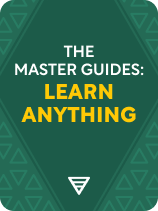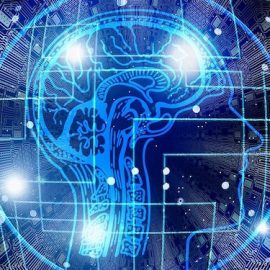

This article is an excerpt from the Shortform book guide to "The Master Guides: Learn Anything" by Shortform. Shortform has the world's best summaries and analyses of books you should be reading.
Like this article? Sign up for a free trial here.
How well can you explain what you know to others? How might you go past a surface-level knowledge of something and reach a deep understanding?
True learning entails comprehension. You can memorize a set of facts and never understand them. Not only is conceptual knowledge valuable in itself, but you also can use it as a springboard to elevate you to an even higher level of learning.
Continue reading for tips on how to learn concepts—and to understand the value of doing so.
Learning Concepts
It’s one thing to memorize facts and ideas, but true learning requires actually understanding what you’ve committed to memory. Comprehension, also known as conceptual knowledge, is the understanding of how individual ideas relate to each other. Once you know how to learn concepts effectively, you can use that conceptual knowledge as a basis for even further learning and to free up mental resources that were previously taxed by memorization.
The authors of Make It Stick suggest that instead of simply memorizing information when you’re learning something new, you’ll gain a more meaningful understanding if you identify the underlying principles that will guide you when you use your new knowledge. One way to extract the main principles is to look at multiple examples at once to see the common thread more clearly. If you examine two different problems at once, you may notice similarities or differences that illuminate the underlying rules. Once you’ve found them, connect those principles with prior relevant knowledge. This process creates context, which deepens your understanding, helps create mental models, and brings together interrelated concepts.
In Ultralearning, Scott Young asserts that deep comprehension gives you a solid foundation that lets you build on your knowledge to understand even more complex ideas. For example, you must have a deep understanding of algebra before you can master calculus. However, Young says that, when you think you understand something more than you actually do, you keep yourself from learning. Therefore, you should frequently question yourself to avoid overestimating your knowledge. Always ask, “Do I understand this well enough to explain it?”
According to Jo Boaler in Limitless Mind, another advantage of conceptual understanding is that it takes up less memory than lists of memorized facts. Furthermore, understanding how different ideas relate to one another creates new avenues for problem-solving. For example, if you were to memorize a separate list of driving directions to every place you regularly visit—the grocery store, the post office, a friend’s house—that would be a hundred times more taxing than simply building a mental map of your city and how its major roads intersect.
| Example: Jack and Sara Make Progress Through repeated practice and applying what they’ve learned, Jack and Sara both start to rely less on memory and more on their personal understanding of their subjects. When solving problems in class, Sara finds that she no longer has to strain to remember the basic laws of physics—they come to her intuitively. Likewise, Jack discovers that the shapes of many basic guitar chords are now second nature, and he can focus instead on learning chord progressions and complicated rhythms. The information that once took up a lot of mental space has now been compressed into more efficient neural patterns in their brains. |

———End of Preview———
Like what you just read? Read the rest of the world's best book summary and analysis of Shortform's "The Master Guides: Learn Anything" at Shortform.
Here's what you'll find in our full The Master Guides: Learn Anything summary:
- How you can learn anything you want at any point in your life
- Advice from experts on how to master the skill of learning
- A guide on how to improve your memorization, comprehension, and more






